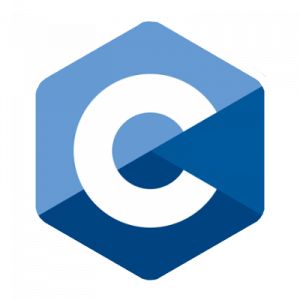What You will Learn
- Understand the fundamentals of the C Programming Language, Create your first C Application.
- Understand variables and the different data types, Understand the core language that most modern languages are based on.
- Make yourself more marketable for entry level programming positions, Learn one of the most popular, idly used languages. in the world
- Learn how to write high-quality code.
Course Format
- Physical Tutorials
- Assignments
- Industrial Projects
- Certification
Course Duration*
- 1 hr a day
- 3 days a Week
- 3 Assignments
- 1 Project
Course Content
C programming courses cover the fundamentals of the C programming language, which is a starting point for learning to program.In C Programming class one will learn the usage of syntaxes and will learn in details Object Oriented Programming OOPS Concepts. Mastery of C language will help you build a solid foundation and make learning of any programming language in your future endeavors in technology simple.
- Introduction to Programming Language.
- Introduction to C Programming.
- Keywords & Identifiers.
- Constants.
- Variables.
- Input and Output Operations.
- Compilation and pre-processing.
- Different data types.
- Data types qualifier.
- Modifiers.
- Memory representation.
- Size and range.
- Arithmetic Operators.
- Relational Operators.
- Logical Operators.
- Bitwise Operators.
- Assignment & compound assignment Operator.
- Increment & Decrement Operator.
- Conditional Operator.
- Operator types (unary, binary, ternary).
- Expressions.
- Order of expression (Precedence and associativity).
- Decision Making and Branching.
- Selection control structure.
- The WHILE Statement.
- The DO…WHILE Statement.
- The FOR Statement.
- Jumps in Loops.
- Concept of Array.
- Array Declaration.
- Types of array.
- Character Arrays and Strings.
- Subscript and pointer representation of array.
- Array of Pointers.
- Limitation of array.
- Concept of Pointer.
- Pointer Expressions.
- Accessing the Address of a Variable.
- Declaring Pointer Variables.
- Initializations of Pointer Variable.
- Accessing a Variable through its Pointer.
- Pointer arithmetic.
- Types of storage class.
- Scope rules.
- Declaration and Definition.
- Function & types.
- Function Definition.
- Declaration.
- Function Calls.
- Header file and library.
- Function Arguments.
- string handling function.
- Function recursion.
- Functions Returning Pointers.
- Pointers to Functions.
- Command line arguments.
- Application of pointer.
- Defining.
- Declaring.
- Accessing.
- Initialization Structure.
- Nested structure.
- Self-referential structure.
- Bit-field.
- Arrays of Structures.
- Structures and Functions.
- Unions.
- Difference between structure and union.
- Active data member.
- Structure within union.
- Self-referential Structure.
- File Management in C.
- Defining and Opening a File.
- File opening modes (read, write, append).
- Closing a File.
- File operations.
- File and stream.
- Error Handling During I/O Operations.
- Sequential and random access file.
- Low level and high level file.
Course Mentor(s)
+
Persons Mentored
+
Workshops Attended
Stay Connected with Us
Subscribe us now to get informations about new offerings, latest happenings from and around us


